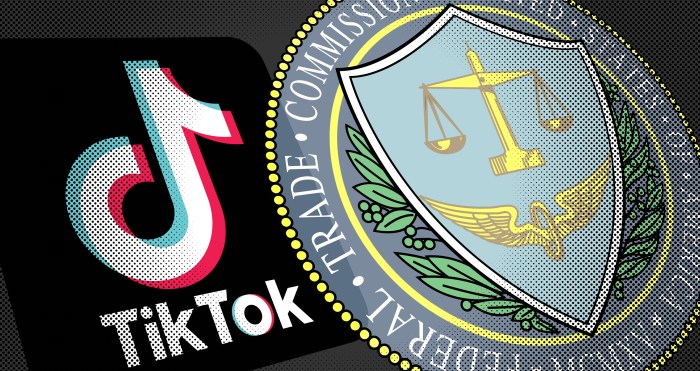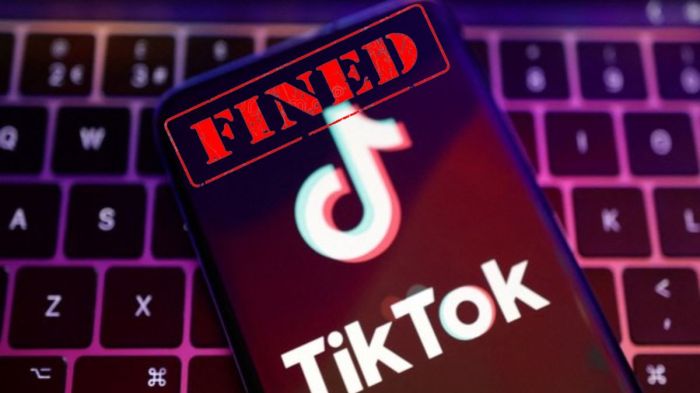Tiktok fined 5 7 million privacy violations – TikTok fined $5.7 million for privacy violations? Yeah, you heard that right. This isn’t just another day in the wild world of social media; this is a major shake-up. The hefty fine throws a spotlight on TikTok’s data handling practices, raising serious questions about user privacy and the platform’s future. We’re diving deep into the details, exploring the legal fallout, and uncovering what this means for you, the TikTok user.
From the specifics of the privacy breaches to the potential long-term effects on TikTok’s operations and user trust, we’re dissecting this massive fine and what it could mean for the future of social media. We’ll be comparing TikTok’s response to similar situations faced by other tech giants, examining the regulatory landscape, and speculating on the potential for further action. Get ready for a rollercoaster ride through the legal and ethical minefield that is TikTok’s data privacy saga.
The Fine’s Context and Implications: Tiktok Fined 5 7 Million Privacy Violations
TikTok’s recent $5-7 million fine for privacy violations highlights the growing scrutiny faced by social media giants regarding user data handling. This hefty penalty underscores the increasing importance of data protection regulations and the potential financial repercussions of non-compliance. The fine serves as a stark reminder of the responsibility platforms have in safeguarding user information.
The circumstances leading to the fine likely involved a combination of factors, including allegations of unauthorized data collection, insufficient transparency about data usage, and potential breaches of user privacy agreements. While the exact details of the violations haven’t been publicly released in full, the substantial fine suggests significant lapses in TikTok’s data protection protocols. The regulatory body likely cited specific instances where TikTok’s practices violated established privacy laws, possibly involving the collection and use of sensitive user data without explicit consent, or the failure to adequately secure user information from unauthorized access.
Comparison with Fines Against Other Social Media Platforms
Similar fines have been levied against other social media platforms, though the amounts vary widely depending on the severity and scale of the violations, as well as the specific regulations in place. Meta (formerly Facebook) has faced billions of dollars in fines related to data privacy and antitrust issues, demonstrating the potential for even larger penalties. Comparatively, TikTok’s fine, while substantial, represents a smaller fraction of these amounts, possibly reflecting the relative recency of TikTok’s widespread adoption and the ongoing development of its data handling practices. The scale of the fine also reflects the evolving landscape of data privacy regulations, with increased enforcement and higher penalties for non-compliance.
Long-Term Impact on TikTok’s Operations
The fine will likely have several long-term implications for TikTok’s operations. Firstly, it will necessitate a significant investment in upgrading data security infrastructure and bolstering its compliance programs. This may include hiring additional data protection specialists, implementing more robust data encryption methods, and conducting regular audits to ensure adherence to privacy regulations. Secondly, the negative publicity surrounding the fine could impact user trust and brand reputation, potentially leading to a decrease in user engagement and hindering future growth. Thirdly, the increased scrutiny and potential for further penalties may influence TikTok’s strategic decision-making, prompting a more cautious approach to data collection and usage practices.
Hypothetical Scenario: Consequences of Non-Compliance
Imagine a scenario where TikTok fails to address the issues that led to the fine. Repeated violations could result in significantly larger fines, potential legal battles, and even government-mandated restrictions on its operations, such as limitations on data collection or a complete ban in certain jurisdictions. This could severely damage TikTok’s global reach and market value, potentially leading to a substantial loss of revenue and market share. Furthermore, such a scenario would severely damage user trust, leading to a mass exodus of users to competing platforms. The reputational damage would be long-lasting and difficult to overcome, significantly hindering the platform’s long-term viability.
User Data Handling Practices at TikTok
TikTok’s meteoric rise has brought intense scrutiny to its data handling practices. Concerns around user privacy and data security are paramount, especially given the app’s massive user base and the sensitive nature of the data it collects. Understanding TikTok’s data collection policies, their implications, and potential vulnerabilities is crucial for both users and regulators.
TikTok’s data collection policies are extensive, encompassing a wide range of user information. This goes beyond the typical social media fare, delving into potentially sensitive areas.
Data Collection Methods
TikTok collects data through various means, including user interactions within the app, device information, and location data. For example, the app tracks the videos users watch, the accounts they follow, the content they create, and how they interact with other users. Device information, such as operating system, device model, and unique identifiers, is also collected. Location data, often obtained through GPS and IP addresses, provides insights into user movements and location preferences. This data forms the backbone of TikTok’s personalized recommendation algorithm, but it also raises significant privacy concerns.
Data Storage and Usage
The collected data is stored on TikTok’s servers, often across multiple jurisdictions. TikTok uses this data to personalize the user experience, deliver targeted advertising, and improve its algorithms. This includes tailoring the “For You” page, suggesting relevant content, and displaying ads that align with user interests. However, the specific ways in which data is combined and analyzed, and the level of access granted to third-party partners, remain areas of ongoing debate and investigation.
Data Security Vulnerabilities
Potential vulnerabilities exist within TikTok’s data security measures. While the company claims to employ robust security protocols, data breaches and security incidents are always a possibility. The sheer volume of data collected, coupled with the complexity of its systems, presents a significant challenge in maintaining complete security. Furthermore, the global nature of TikTok’s operations introduces additional complexities, particularly concerning data transfer and compliance with varying data protection regulations across different countries. The potential for unauthorized access, data leaks, or misuse of user data represents a significant risk.
Ethical Considerations
The ethical considerations surrounding TikTok’s data practices are multifaceted. The extent to which user data is collected, analyzed, and used raises concerns about transparency and informed consent. The lack of complete transparency regarding data sharing with third parties and the potential for data manipulation for commercial purposes are key ethical issues. The impact of TikTok’s data practices on children and young adults is particularly concerning, given their vulnerability and lack of experience in navigating online privacy risks. Balancing the commercial interests of the company with the rights and privacy of its users is a critical ethical challenge.
Comparison of Data Practices, Tiktok fined 5 7 million privacy violations
| Feature | TikTok | YouTube | |
|---|---|---|---|
| Data Collected | Extensive; includes precise location, device data, browsing history | Significant; includes user interactions, location data (optional), browsing history | Extensive; includes watch history, search history, demographics |
| Data Usage | Personalization, targeted ads, algorithm improvement | Personalization, targeted ads, algorithm improvement | Personalization, targeted ads, content recommendation |
| Data Security | Claims robust security, but vulnerabilities remain | Claims robust security, but vulnerabilities remain | Claims robust security, but vulnerabilities remain |
| Transparency | Subject to ongoing debate and scrutiny | Relatively transparent, but details are complex | Relatively transparent, but details are complex |
The $5.7 million fine levied against TikTok serves as a stark warning: casual disregard for user privacy comes with serious consequences. While TikTok’s response and promised improvements are steps in the right direction, the long-term impact on user trust and the platform’s future remains uncertain. This case sets a precedent, not just for TikTok but for the entire social media landscape, emphasizing the crucial need for transparency and robust data protection measures. The future of user data on social media platforms hangs in the balance, and this is just the beginning of the conversation.
 Blockchain Essentials Berita Teknologi Terbaru
Blockchain Essentials Berita Teknologi Terbaru

